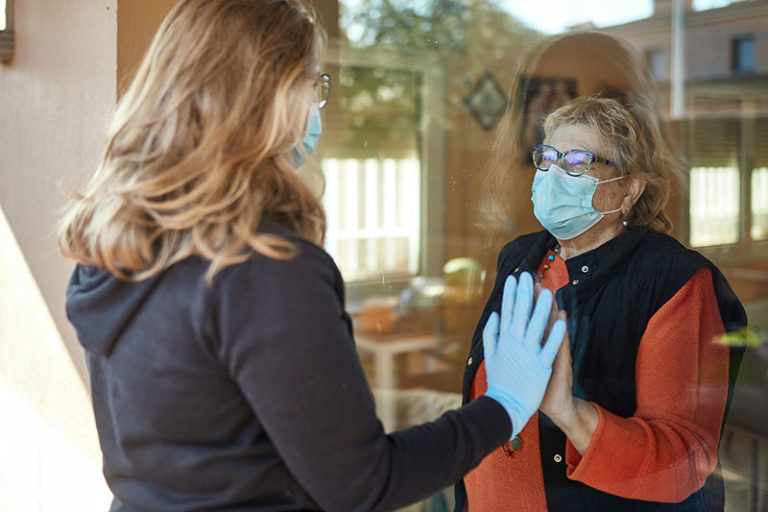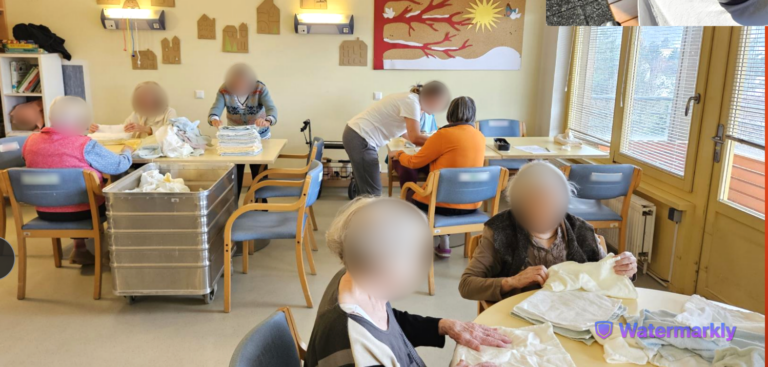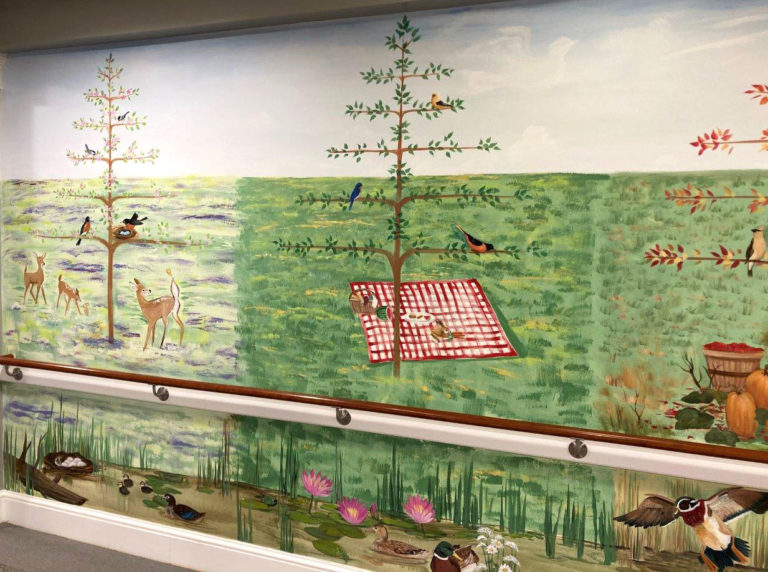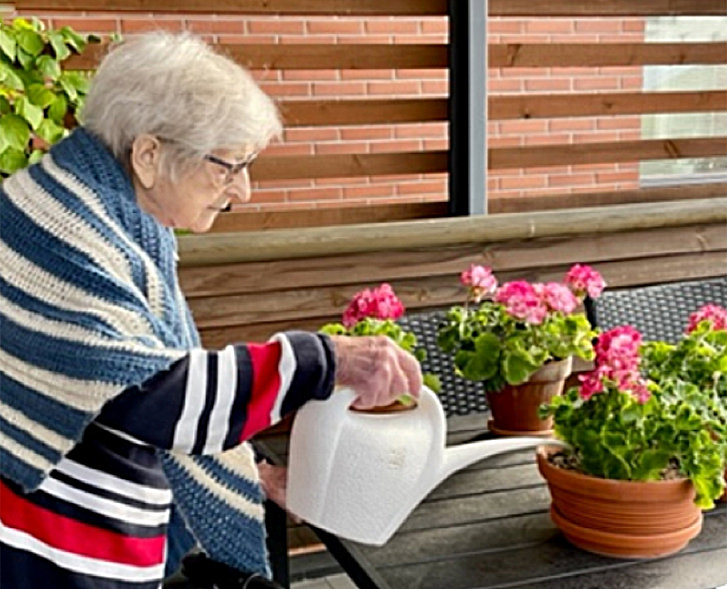The Story of a Bread Maker
by Pamela Leudke, Certified Montessori Guide & Certified Montessori Elder Care Practitioner (Ontario, Canada)
Bread and the breaking of it, in community with others, is a universal food and ritual that crosses the centuries, cultures and all ages. And such was the story of a simple bread maker and the elder for my Case Study #1. In the process of deciding upon, developing and implementing the use of a bread maker as part of the Meaningful Engagement Role for J.H., I was able to practice and witness the key purposes and principles of the Montessori for Aging and Dementia program. What an incredible learning experience it was for me!
J.H.’s care team chose him to work with me because they felt that he would benefit from more engagement in activities and hoped to foster a deeper sense of connection to the community he was living in. In past attempts to engage J.H. in various activities and with other elders, he often demonstrated reluctance or refusal to do so. His daughter, a part of his care team, was most enthusiastic about the opportunity for me to work with J.H. I began meeting with him to conduct the Personalized Assessment to learn as much about him as possible. It took several visits for him to feel comfortable enough with me to share about himself but as his trust grew, so did his stories and memories that he shared.
During one of these visits, J.H. shared that he had been a miller at a flour mill and later went on to become a commercial baker for a large company. He spoke fondly of these times and when he recalled memories about when his mother would bake bread, I heard an emotional connection in his voice that I had not heard before. When he longingly made the comment that he did not think he would ever be able to smell or taste fresh baked bread again, I knew that I had to develop a way for him to be able to have that experience again. And so, I decided to try and create that as J.H.’s Meaningful Role for my Case Study. I told him that if I could enable him to have the experience of baking bread and be able to smell and taste it, would he be willing to try? He agreed with some skepticism. He could not imagine how this could be possible. I secured a used bread maker that J.H.’s daughter had stored in her basement. Thus, the role of being a ‘bread maker’ within his community came to fruition.
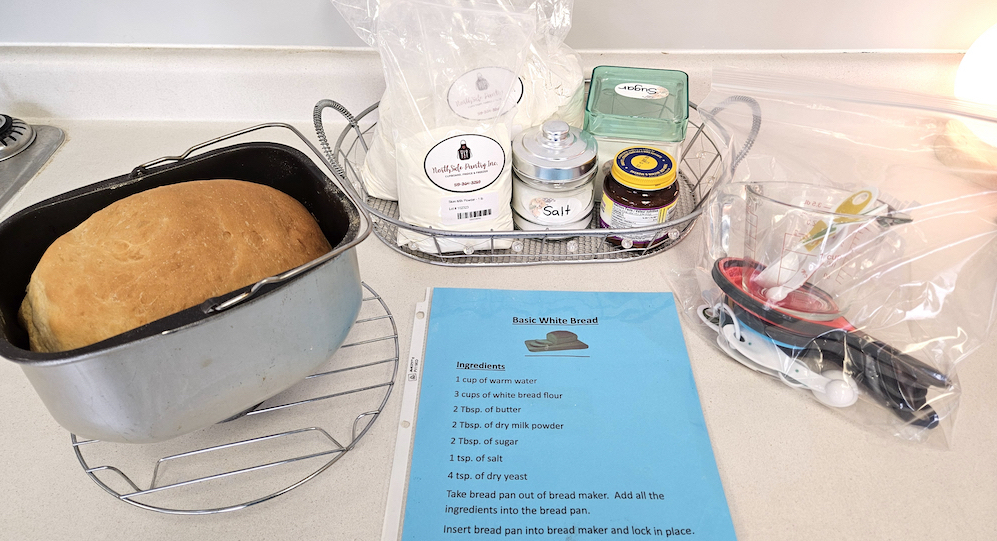
In the process of creating and implementing the meaningful role of being a bread maker for his community, I experienced both successes and challenges and all were wonderful learning opportunities for me! The most meaningful success for me was the incredible memories and conversations this role elicited from J.H., members of his care team, other elders and his family. The first time J.H. engaged in making bread, he recited the entire master recipe for the bread he baked at the commercial bakery. I was amazed at his preserved recall of this! When the bread was baking and people saw the completed loaf, I heard several conversations amongst staff and the elders about their own feelings towards the smell of fresh baked bread and their own memories of it. Each time J.H. made bread, I observed that he became increasingly independent when reading, following the recipe, and measuring the ingredients. I also enjoyed seeing the sense of satisfaction on J.H.’s face each time he made a loaf and recalled to me how it tasted when he ate it. Another success was being able to accommodate other rules, guidelines and physical limitations to still be able to offer this role to J.H. It taught me the value of being a creative problem solver. There is usually a solution and the rewards far surpass the effort! I was most pleased that this role was accepted by J.H. and fostered a greater sense of purpose and connection within his community. It offered him something to do during the day and allowed people within his community to observe his abilities and connect with him in a more meaningful way. (e.g. other elders asked him when he was going to bake bread next or gave him feedback on how much they enjoyed smelling it while it baked).
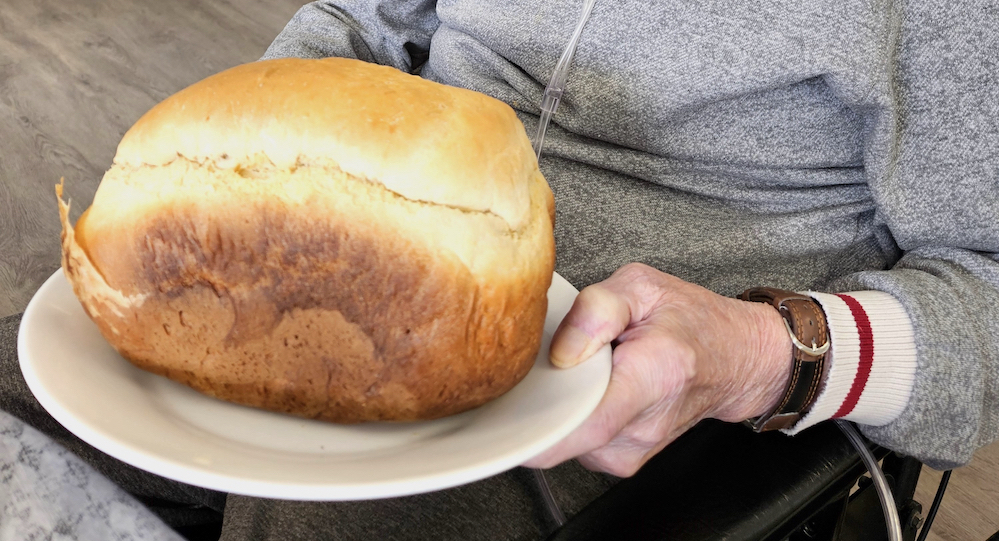
This role also extended to his family. J.H.'s daughter came when he baked bread a few times and they ate some together with homemade strawberry jam that she brought. She said that these were very special times of community with her father. A few days before J.H. was suddenly hospitalized, she decided to take J.H. to see his brother (who he had not seen in a long time) and bring a loaf of his bread to share with him. J.H.’s daughter reported that this was a beautiful experience for all and V.B. looked so proud when he showed his brother the bread he had baked!
Thus is the story of the Bread Maker. Sadly J.H. was hospitalized and passed away a few days later. However, this simple machine and the practice of ‘breaking bread’ created meaningful engagement for the life of J.H. more than I could have ever imagined!
Special thanks to Pamela Leudke for allowing us to reprint this essay.


